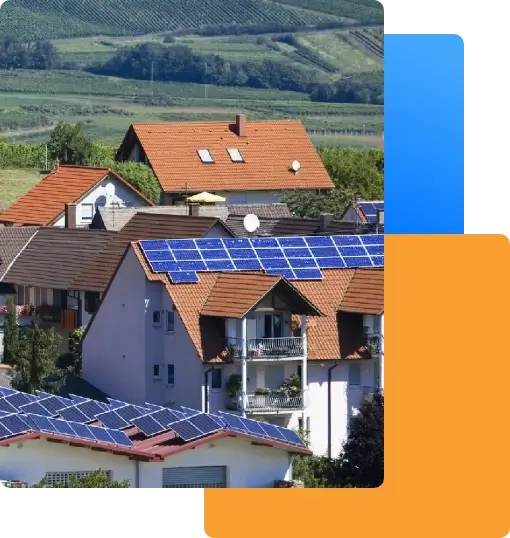

Residential solar panels deliver clean, efficient energy, ensuring significant savings while shielding you from the impact of recent rate hikes. Embrace a smarter, sustainable way to power your home.
Increase revenue when you cut expensive energy costs with solar solutions. Running a business can mean spending a lot on power, but with solar energy, you no longer have to.
Avoid electric rate fluctuations and increases with your solar energy system.
Utility rates are constantly rising, not just because of how much you use but also because it is getting more expensive to produce and manage with the rising demand.
With solar energy, you protect yourself from these demands and diminishing supply by getting your energy directly from the sun.
Solar energy is a long-term and low-risk investment. Although a solar energy system may cost more initially, you reap significant savings in the succeeding years after paying off the system by enjoying the benefits of solar power for free.
A solar customer’s electric bill gets credited via the Net Energy Metering (NEM) program for any excess energy they send back to the grid. Therefore, with solar energy, you get financial credit for any excess energy they contribute to their utility.
Solar panels increase the value of your home because it helps reduce energy consumption. In addition, the most recent data shows that solar-powered homes sell 20% more quickly than non-solar homes because solar panels increase a home’s desirability to potential purchasers.
Every employee at Construct Sun is passionate about helping our customers be power independent with our quality products and services. We are proud to go above and beyond for our customers to create an enduring relationship.
We do not promise what we cannot deliver. Construct Sun is proven to provide excellent solar solutions and quality customer service to fit our customers' needs and expectations.
From planning the timeline to executing the project, we keep you updated every step of the way. You can depend on our seasoned team of solar educators to meet your expectations and provide you with an excellent solar solution tailored to your needs.
At the core of Construct Sun is a team of solar energy experts who advocate for clean, renewable energy. We thrive in providing quality solar solutions to residents and establishments who look for a better way to solve energy-related financial and environmental concerns.
We care about our customers' experience, so we make it a point to be accessible and always within reach to anyone who needs our service and attention.
We are available to service residents and business owners within Nevada, North Carolina, and neighboring states. Our responsive team is also available for inquiries via phone, email, or our website.

